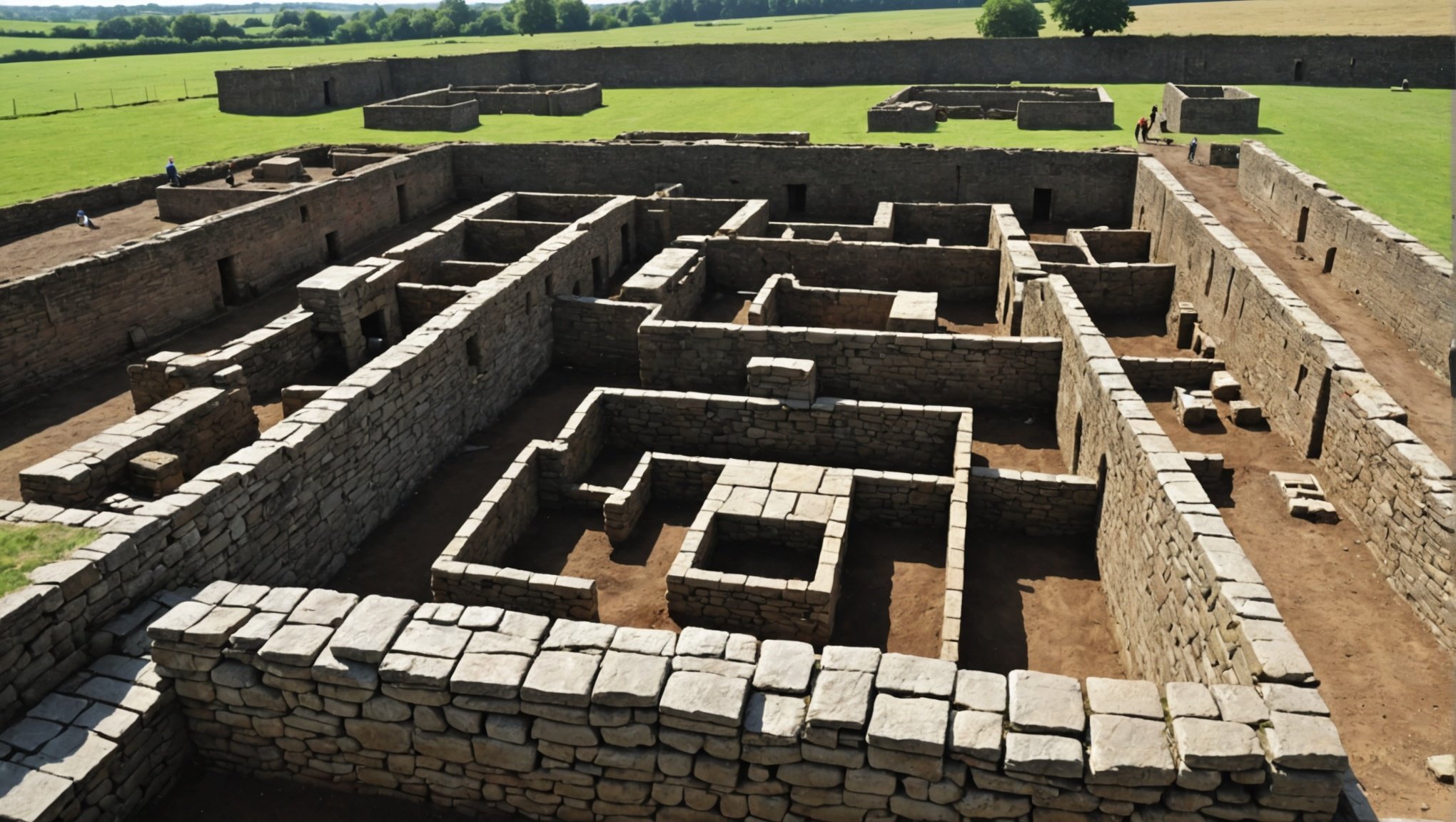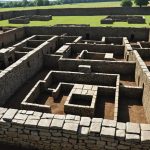Unearth the past and experience history firsthand through archaeological digs across the UK. Participating in these excavations allows you not only to contribute to significant discoveries but also to work alongside experts in the field. From ancient Roman sites to medieval castles, each dig presents a unique opportunity to unravel mysteries that have lain hidden for centuries. Discover how you can become part of this exciting journey and make a lasting impact on our understanding of history.
Overview of Participatory Archaeology in the UK
Participatory archaeology offers an engaging approach to the exploration of the past, where individuals from diverse backgrounds actively contribute to archaeological digs. This method is gaining traction in the UK, renowned for its rich archaeological landscape. The UK’s archaeological digs provide a unique platform for both enthusiasts and professionals to experience hands-on archaeology.
In parallel : Travel smart: tips for your next adventure awaits
Participatory archaeology is a collaborative process that invites non-professionals to join in archaeological excavations. This inclusive approach not only helps uncover historical artefacts but also fosters a deeper connection with history. Participants gain a hands-on archaeology experience, allowing them to directly engage with the material culture of past societies.
The UK is a treasure trove of archaeological sites, from prehistoric monuments to Roman ruins. These sites offer ample opportunities for participatory archaeology, where individuals can contribute to ongoing research and preservation efforts. Engaging in UK archaeological digs provides participants with a sense of accomplishment and a unique perspective on history.
Also read : Uncovering the Top Guided Tours of Roman Baths and Historic Spa Towns in the UK
The benefits of participatory archaeology extend beyond personal enrichment. It enhances public understanding of archaeological practices and promotes the preservation of cultural heritage. By participating in these digs, individuals help bridge the gap between academic research and public interest, ensuring the continued relevance and support for archaeological endeavours in the UK.
Notable Archaeological Digs in the UK
Exploring UK archaeological sites offers a fascinating dive into history. Here are some notable excavations where you can actively participate.
Site 1: Vindolanda
Vindolanda, located near Hadrian's Wall, is a treasure trove of Roman history. This site is famous for its well-preserved artefacts, including wooden writing tablets and leather shoes, providing insights into Roman life. Participants in Vindolanda excavations can engage in hands-on archaeology, uncovering artefacts and learning excavation techniques. Digs typically run from April to September, offering opportunities for both short-term and extended involvement.
Site 2: Must Farm
Known as the "Pompeii of the Fens," Must Farm in Cambridgeshire reveals a Bronze Age settlement preserved in remarkable detail. Participants can explore ancient structures, tools, and pottery, gaining a deeper understanding of prehistoric life. The site offers UK archaeological digs from May to August, welcoming volunteers to join in this unique exploration of the past.
Site 3: Stonehenge Landscape
The Stonehenge Landscape is not just about the iconic stone circle; it's an area rich with archaeological potential. Excavations here uncover Neolithic and Bronze Age artefacts, offering insights into early human rituals. Participants can join digs from June to October, engaging in activities such as surveying and artefact analysis, making it one of the most popular digs in the UK.
Participation Requirements and Costs
Engaging in participatory archaeology in the UK is an accessible venture, though it does come with certain participation requirements. Generally, participants should be at least 16 years old, with some digs requiring individuals to be 18 or older. While prior experience is not mandatory, a keen interest in history and archaeology is beneficial. Some sites may ask for specific skills, such as basic excavation techniques, which can be acquired through training for archaeology workshops.
The costs of digs vary significantly depending on the site and duration of the excavation. Fees typically cover essential elements such as equipment and site access. Participants should also budget for accommodation and meals, as these are often not included in the initial fee. Some sites offer on-site camping or nearby lodging options at an additional cost.
To ensure participants are well-prepared, many archaeological projects offer training for archaeology sessions. These workshops can range from introductory courses to more advanced training, covering excavation methods, artefact handling, and site surveying. Such training not only enhances the experience but also equips participants with the skills needed for effective contribution to the digs.
Skills and Training for Participants
Participating in archaeological digs requires a blend of enthusiasm and specific archaeology skills. While passion for history is a great start, developing practical skills is essential for effective contribution. Participants often need to learn excavation techniques, artefact handling, and site surveying. These skills ensure that volunteers can perform tasks accurately and help preserve historical integrity.
Training programs and workshops are available to equip volunteers with necessary skills. These programs cater to different experience levels, offering both introductory and advanced courses. They typically cover excavation methods, artefact analysis, and documentation practices. Such training not only boosts confidence but also enhances the overall participatory experience.
Volunteers can access a variety of resources for skill development in archaeology. Many archaeological projects offer on-site volunteer training, providing hands-on learning opportunities. Additionally, online platforms and local community courses can supplement knowledge and skills. These resources are invaluable for those looking to deepen their understanding and improve their contributions to archaeological digs.
Engaging in archaeology skills development not only benefits the individual but also enriches the archaeological community. By investing time in training, participants become valuable assets to digs, ensuring that the rich tapestry of history is uncovered with care and precision.
Personal Experiences and Testimonials
Engaging in archaeological experiences offers participants a unique opportunity to connect with history. Through participant testimonials, we gain insight into the profound impact these experiences have on individuals. Many participants express how their involvement in digs has fostered both personal and professional growth.
One participant recounts their time at Vindolanda, noting how the hands-on archaeology experience enriched their understanding of Roman history. They described the thrill of uncovering artefacts and the camaraderie built among team members. Such firsthand accounts highlight the sense of achievement and connection to the past.
Another testimonial from a participant at Must Farm emphasises the transformative nature of the experience. They shared how working with ancient structures and tools deepened their appreciation for prehistoric life and inspired them to pursue a career in archaeology. These stories demonstrate the tangible impact of participatory archaeology on personal development.
Memorable experiences in the field often include unexpected discoveries and the shared joy of unearthing history. Participants frequently mention the supportive environment and the invaluable skills gained through training. These archaeological experiences not only enhance historical knowledge but also foster lasting memories and friendships among participants.
Additional Resources and How to Get Involved
Embarking on a journey into archaeology requires access to quality archaeological resources. Numerous organisations and institutions across the UK offer volunteer opportunities for those eager to delve into this fascinating field. The Council for British Archaeology and the Archaeology Data Service are excellent starting points, providing comprehensive information on getting involved in archaeology.
For those seeking to expand their knowledge, suggested reading materials such as "Archaeology: A Very Short Introduction" by Paul Bahn are invaluable. Online platforms like Coursera and FutureLearn offer courses that can deepen your understanding and prepare you for hands-on experiences. These resources serve as a gateway to the world of archaeology, equipping enthusiasts with essential insights and skills.
Volunteer opportunities abound in the UK, with many archaeological digs actively seeking participants. To get involved, start by researching upcoming digs on websites of reputable organisations. Most sites require an application, which typically involves expressing your interest and detailing any relevant experience. Be sure to check specific requirements, such as age limits or necessary skills, to ensure a smooth application process. Engaging in these opportunities not only enriches personal understanding but also contributes to preserving the UK’s rich historical landscape.
















